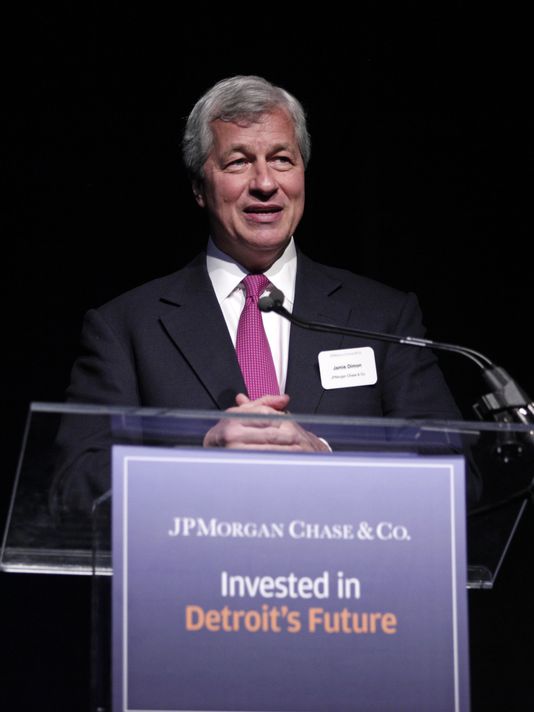JPMorgan CEO Jamie Dimon has throat cancer
HTTP/1.1 200 OK Server: nginx/1.2.7 Content-Type: text/html; charset=utf-8 Content-Language: en Last-Modified: Wed, 02 Jul 2014 03:49:43 GMT X-UA-Compatible: IE=Edge,chrome=1 X-Secret: cnpudnkgcnpiZXZnbUBoZm5nYnFubC5wYnogbmFxIFYganZ5eSBnZWwgZ2IgdHJnIGxiaCBuIHdiby4= Cache-Control: max-age=20 Expires: Wed, 02 Jul 2014 03:51:14 GMT Date: Wed, 02 Jul 2014 03:50:54 GMT Transfer-Encoding: chunked Connection: keep-alive Connection: Transfer-Encoding
NEW YORK — JPMorgan Chase CEO Jamie Dimon revealed Tuesday that he has throat cancer, but also said he plans to stay at the helm of the global banking giant while he undergoes treatment.
Dimon sent a letter[1] to bank executives and employees Tuesday saying the cancer is curable and his health outlook is excellent, because the disease was detected at an early stage.
"The good news is that the prognosis from my doctors is excellent, the cancer was caught quickly, and my condition is curable," Dimon said in the letter. "I feel very good now and will let all of you know if my health situation changes."
LETTER: Read the message from CEO Jamie Dimon[2]
Dimon told staffers that he will undergo radiation and chemotherapy treatment at Memorial Sloan Kettering Cancer Center in Manhattan for the next eight weeks. He said he intends to continue to run the bank during that time.
"He is going to be actively involved in the business every day," Joe Evangelisti, a corporate spokesman, said Tuesday night.
JPMorgan shares rose 0.6% to $57.57 in regular trading Tuesday before news of Dimon's condition began to trickle out publicly. In after-hours trading, the stock fell 0.6%.
Dimon, 58, became the bank's board chairman in December 2006. He has been JPMorgan's CEO and president since Dec. 2005, according to the bank's most recent proxy statement filed with the and Exchange Commission.
That makes him the New York City-based banking giant's longest-serving top official. The widely recognized executive has been the corporate face of JPMorgan as the bank has navigated economic ups — and downs.
In September, JPMorgan Chase admitted wrongdoing and was fined roughly $920 million in a settlement of the bank's "London whale" trading debacle.
The admission of fault and hefty fines came in response to a 2012 episode in which the bank's London-based traders amassed large and risky investment positions in an effort to avoid losses in a credit portfolio. The positions were so big they drew attention from other firms' traders, who dubbed Bruno Iksil, the chief JPMorgan trader involved, "the London whale."
JPMorgan initially said the trades, which ultimately racked up an estimated $6.2 billion in losses, had been a hedge against risk. But the strategy instead morphed into proprietary trading for the bank's benefit — partly funded with federally insured deposits.
Dimon at first characterized the incident as a "tempest in a teapot" in a statement to Wall Street analysts. But he subsequently withdrew the statement and acknowledged the trading should have been more carefully monitored.
Separately, the banking giant in November finalized a $13 billion settlement of multiple investigations over its involvement with toxic mortgage investments like those that helped spark the 2008 financial crisis.
Dimon has nonetheless maintained support from investors, Wall Street and bank officials because JPMorgan emerged from the great recession in better financial shape than many rivals during his tenure, and because the bank — and its stock — have remained financially strong.
Read or Share this story: http://usat.ly/1lQy4ux
References
- ^ http://www.usatoday.com/story/money/2014/07/01/jpmorgan-chase-jamie-dimon-letter-cancer/11943099/ (rssfeeds.usatoday.com)
- ^ http://www.usatoday.com/story/money/2014/07/01/jpmorgan-chase-jamie-dimon-letter-cancer/11943099/ (rssfeeds.usatoday.com)










